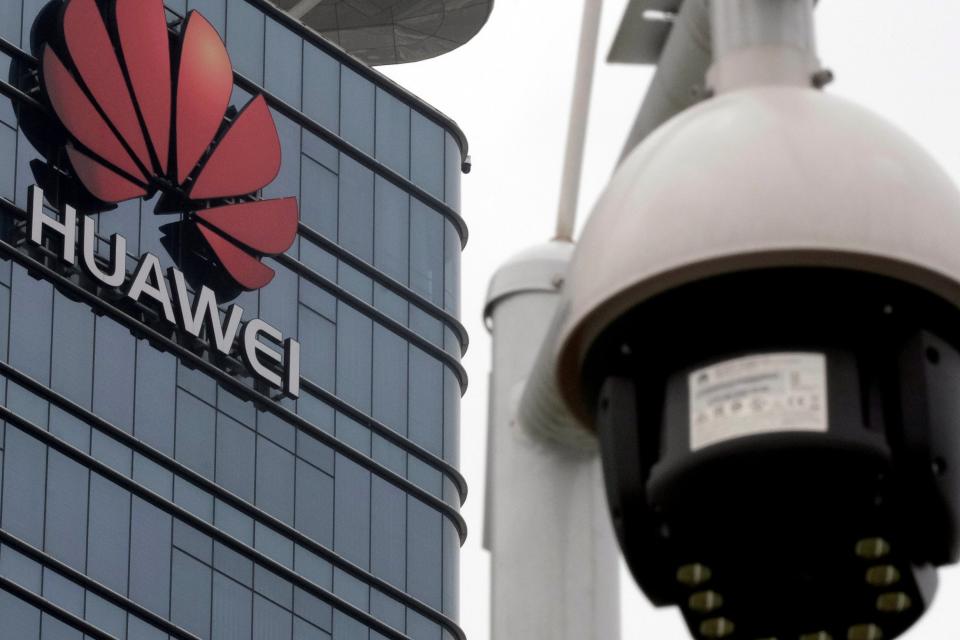Huawei: Senior intelligence officers 'bemused and concerned' as ministers consider criminal investigation into leak
Ministers say they cannot rule out a criminal investigation into the leak from the National Security Council of Theresa May’s decision to allow Huawei, the Chinese telecommunications giant, access to the nation’s 5G network.
The chair of the Foreign Affairs Committee, Tom Tugendhat MP, on Thursday wrote to Sir Mark Sedwill, cabinet secretary and national security adviser, to request an immediate inquiry into the apparent leak from this week’s National Security Council meeting.
“Such leaks not only potentially threaten our national security, but they also damage our relationship with key allies and undermine their trust in us,” the letter said.
It follows demands from both Conservative and Labour MPs for a full-blown inquiry into reports that Huawei’s work had been approved at this week’s NSC – despite opposition from some cabinet ministers.
Senior officers in Britain’s intelligence and security agencies said they are “bemused and concerned” at the leak but officials from the agencies stressed that it was up to the government to decide what to do about the revelation of sensitive information.
More than one source, however, said they would not be “surprised” if Sir Mark ordered an investigation or if one is held under the Official Secrets Act.
Jeremy Wright, the culture secretary, said he could not rule out a criminal investigation under the Official Secrets Act, telling the Commons it was a “matter for investigating and prosecuting authorities to consider”. Any decision to prosecute would have to be taken by Geoffrey Cox, the attorney general.
The mood at the NSC meeting where the decision was made was said to have been tense and fraught with most of those attending leaving grim-faced when it ended at about 4pm.
The leak, the first one on a major issue since the NSC was formed, came in the next three hours, and is being viewed in Whitehall as designed to show the toughness of a cabinet minister with aspirations to the leadership after Theresa May goes.
Gavin Williamson, the defence secretary, Sajid Javid, the home secretary, Liam Fox, the international trade secretary and Penny Mordaunt, the international development secretary, are all said to have objected strongly to the participation of Huawei in a key sector of the UK’s communications network.
The multinational, which was founded in 1987 by Ren Zhengfei (a former member of the People’s Liberation Army technical division with connections to the military hierarchy and the ruling Communist Party), has been repeatedly accused of being an intelligence arm of the Beijing government.
An investigation under the Official Secrets Act would involve Scotland Yard’s Special Branch and, possibly, GCHQ if a minister’s communications and those of his staff are tracked. As well as the possibility of a Cabinet Office inquiry there are also suggestions that the Commons Intelligence and Security Committee (ISC) can carry out its own inquiry, but the mechanics for this remains unclear.
Dominic Grieve, the ISC chair, said the leak was “deeply worrying” and that if any minister was found to be responsible they should be sacked.
He told the BBC: “The principle that what is discussed at the NSC is kept totally confidential is really important. The problem that we have at the moment is that collective cabinet responsibility has been breaking down and we have seen plenty of leaks come out of cabinet meetings.
“There has certainly been some posturing around on a whole range of issues. I can’t pretend that there aren’t people who appear to be preparing themselves for leadership bids.”
Huawei has been banned from the networks of a number of countries, many of them allies of the UK.
Rob Joyce, a senior adviser at the US National Security Agency, who was attending a cybersecurity conference in Glasgow said: “We have got to understand all the details of that and decide what that means. What we will be insistent on is UK decisions can’t put our information at risk but the good news is that the UK already understands that.”
GCHQ director Jeremy Fleming, who was also at the Glasgow conference, stated technical factors were more important than flag of origin. He continued: “A flag of origin of 5G equipment is important but it is a secondary factor. It’s a hugely complex strategic challenge, going to span the next few decades. How we deal with it will be crucial for our prosperity and for our security.”


